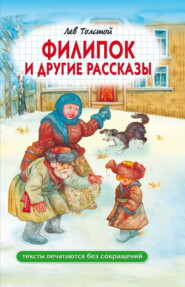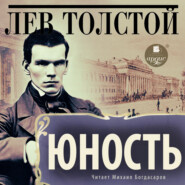По всем вопросам обращайтесь на: info@litportal.ru
(©) 2003-2025.
✖
Sevastopol
Настройки чтения
Размер шрифта
Высота строк
Поля
The hero of my tale, whom I love with all the strength of my soul, whom I have tried to set forth in all his beauty, and who has always been, is, and always will be most beautiful, is – the truth.
SEVASTOPOL IN AUGUST, 1855
I
At the end of August, along the rocky highway to Sevastopol, between Duvanka and Bakhtchisaraï, through the thick, hot dust, at a foot-pace, drove an officer's light cart, that peculiar telyezhka, not now to be met with, which stands about half-way between a Jewish britchka, a Russian travelling-carriage, and a basket-wagon. In the front of the wagon, holding the reins, squatted the servant, clad in a nankeen coat and an officer's cap, which had become quite limp; seated behind, on bundles and packages covered with a military coat, was an infantry officer, in a summer cloak.
As well as could be judged from his sitting position, the officer was not tall in stature, but extremely thick, and that not so much from shoulder to shoulder as from chest to back; he was broad and thick, and his neck and the base of the head were excessively developed and swollen. His waist, so called, a receding strip in the centre of the body, did not exist in his case; but neither had he any belly; on the contrary, he was rather thin than otherwise, particularly in the face, which was overspread with an unhealthy yellowish sunburn. His face would have been handsome had it not been for a certain bloated appearance, and the soft, yet not elderly, heavy wrinkles that flowed together and enlarged his features, imparting to the whole countenance a general expression of coarseness and of lack of freshness. His eyes were small, brown, extremely searching, even bold; his moustache was very thick, but the ends were kept constantly short by his habit of gnawing them; and his chin, and his cheek-bones in particular were covered with a remarkably strong, thick, and black beard, of two days' growth.
The officer had been wounded on the 10th of May, by a splinter, in the head, on which he still wore a bandage, and, having now felt perfectly well for the last week, he had come out of the Simferopol Hospital, to rejoin his regiment, which was stationed somewhere in the direction from which shots could be heard; but whether that was in Sevastopol itself, on the northern defences, or at Inkermann, he had not so far succeeded in ascertaining with much accuracy from any one.
Shots were still audible near at hand, especially at intervals, when the hills did not interfere, or when borne on the wind with great distinctness and frequency, and apparently near at hand. Then it seemed as though some explosion shook the air, and caused an involuntary shudder. Then, one after the other, followed less resounding reports in quick succession, like a drum-beat, interrupted at times by a startling roar. Then, everything mingled in a sort of reverberating crash, resembling peals of thunder, when a thunder-storm is in full force, and the rain has just begun to pour down in floods, every one said; and it could be heard that the bombardment was progressing frightfully.
The officer kept urging on his servant, and seemed desirous of arriving as speedily as possible. They were met by a long train of the Russian-peasant type, which had carried provisions into Sevastopol, and was now returning with sick and wounded soldiers in gray coats, sailors in black paletots, volunteers in red fezes, and bearded militia-men. The officer's light cart had to halt in the thick, immovable cloud of dust raised by the carts, and the officer, blinking and frowning with the dust that stuffed his eyes and ears, gazed at the faces of the sick and wounded as they passed.
“Ah, there's a sick soldier from our company,” said the servant, turning to his master, and pointing to the wagon which was just on a line with them, full of wounded, at the moment.
On the cart, towards the front, a bearded Russian, in a lamb's-wool cap, was seated sidewise, and, holding the stock of his whip under his elbow, was tying on the lash. Behind him in the cart, about five soldiers, in different positions, were shaking about. One, though pale and thin, with his arm in a bandage, and his cloak thrown on over his shirt, was sitting up bravely in the middle of the cart, and tried to touch his cap on seeing the officer, but immediately afterwards (recollecting, probably, that he was wounded) he pretended that he only wanted to scratch his head. Another, beside him, was lying flat on the bottom of the wagon; all that was visible was two hands, as they clung to the rails of the wagon, and his knees uplifted limp as mops, as they swayed about in various directions. A third, with a swollen face and a bandaged head, on which was placed his soldier's cap, sat on one side, with his legs dangling over the wheel, and, with his elbows resting on his knees, seemed immersed in thought. It was to him that the passing officer addressed himself.
“Dolzhnikoff!” he exclaimed.
“Here,” replied the soldier, opening his eyes, and pulling off his cap, in such a thick and halting bass voice that it seemed as though twenty soldiers had uttered an exclamation at one and the same time.
“When were you wounded, brother?”
The leaden and swimming eyes of the soldier grew animated; he evidently recognized his officer.
“I wish Your Honor health!” he began again, in the same abrupt bass as before.
“Where is the regiment stationed now?”
“It was stationed in Sevastopol, but they were to move on Wednesday, Your Honor.”
“Where to?”
“I don't know; it must have been to the Sivernaya, Your Honor! To-day, Your Honor,” he added, in a drawling voice, as he put on his cap, “they have begun to fire clear across, mostly with bombs, that even go as far as the bay; they are fighting horribly to-day, so that – ”
It was impossible to hear what the soldier said further; but it was evident, from the expression of his countenance and from his attitude, that he was uttering discouraging remarks, with the touch of malice of a man who is suffering.
The travelling officer, Lieutenant Kozeltzoff, was no common officer. He was not one of those that live so and so and do thus and so because others live and do thus; he did whatever he pleased, and others did the same, and were convinced that it was well. He was rather richly endowed by nature with small gifts: he sang well, played on the guitar, talked very cleverly, and wrote very easily, particularly official documents, in which he had practised his hand in his capacity of adjutant of the battalion; but the most noticeable trait in his character was his egotistical energy, which, although chiefly founded on this array of petty talents, constituted in itself a sharp and striking trait. His egotism was of the sort that is most frequently found developed in masculine and especially in military circles, and which had become a part of his life to such a degree that he understood no other choice than to domineer or to humiliate himself; and his egotism was the mainspring even of his private impulses; he liked to usurp the first place over people with whom he put himself on a level.
“Well! it's absurd of me to listen to what a Moskva[9 - In many regiments the officers call a soldier, half in scorn, half caressingly, Moskva (Moscovite), or prisyaga (an oath).] chatters!” muttered the lieutenant, experiencing a certain weight of apathy in his heart, and a dimness of thought, which the sight of the transport full of wounded and the words of the soldier, whose significance was emphasized and confirmed by the sounds of the bombardment, had left with him. “That Moskva is ridiculous! Drive on, Nikolaeff! go ahead! Are you asleep?” he added, rather fretfully, to the servant, as he re-arranged the skirts of his coat.
The reins were tightened, Nikolaeff clacked his lips, and the wagon moved on at a trot.
“We will only halt a minute for food, and will proceed at once, this very day,” said the officer.
II
As he entered the street of the ruined remains of the stone wall, forming the Tatar houses of Duvanka, Lieutenant Kozeltzoff was stopped by a transport of bombs and grape-shot, which were on their way to Sevastopol, and had accumulated on the road. Two infantry soldiers were seated in the dust, on the stones of a ruined garden-wall by the roadside, devouring a watermelon and bread.
“Have you come far, fellow-countryman?” said one of them, as he chewed his bread, to the soldier, with a small knapsack on his back, who had halted near them.
“I have come from my government to join my regiment,” replied the soldier, turning his eyes away from the watermelon, and readjusting the sack on his back. “There we were, two weeks ago, at work on the hay, a whole troop of us; but now they have drafted all of us, and we don't know where our regiment is at the present time. They say that our men went on the Korabelnaya last week. Have you heard anything, gentlemen?”
“It's stationed in the town, brother,” said the second, an old soldier of the reserves, digging away with his clasp-knife at the white, unripe melon. “We have just come from there, this afternoon. It's terrible, my brother!”
“How so, gentlemen?”
“Don't you hear how they are firing all around to-day, so that there is not a whole spot anywhere? It is impossible to say how many of our brethren have been killed.” And the speaker waved his hand and adjusted his cap.
The passing soldier shook his head thoughtfully, gave a clack with his tongue, then pulled his pipe from his boot-leg, and, without filling it, stirred up the half-burned tobacco, lit a bit of tinder from the soldier who was smoking, and raised his cap.
“There is no one like God, gentlemen! Good-bye,” said he, and, with a shake of the sack on his back, he went his way.
“Hey, there! you'd better wait,” said the man who was digging out the watermelon, with an air of conviction.
“It makes no difference!” muttered the traveller, threading his way among the wheels of the assembled transports.
III
The posting-station was full of people when Kozeltzoff drove up to it. The first person whom he encountered, on the porch itself, was a thin and very young man, the superintendent, who continued his altercation with two officers, who had followed him out.
“It's not three days only, but ten that you will have to wait. Even generals wait, my good sirs!” said the superintendent, with a desire to administer a prick to the travellers; “and I am not going to harness up for you.”
“Then don't give anybody horses, if there are none! But why furnish them to some lackey or other with baggage?” shouted the elder of the two officers, with a glass of tea in his hand, and plainly avoiding the use of pronouns,[10 - This effect cannot be reproduced in English.] but giving it to be understood that he might very easily address the superintendent as “thou.”
“Judge for yourself, now, Mr. Superintendent,” said the younger officer, with some hesitation. “We don't want to go for our own pleasure. We must certainly be needed, since we have been called for. And I certainly shall report to the general. But this, of course, – you know that you are not paying proper respect to the military profession.”
“You are always spoiling things,” the elder man interrupted, with vexation. “You only hinder me; you must know how to talk to them. Here, now, he has lost his respect. Horses this very instant, I say!”
“I should be glad to give them to you, bátiushka,[11 - “My good sir,” a familiarly respectful mode of address.] but where am I to get them?”
After a brief silence, the superintendent began to grow irritated, and to talk, flourishing his hands the while.
“I understand, bátiushka. And I know all about it myself. But what are you going to do? Only give me” – here a ray of hope gleamed across the faces of the officers – “only give me a chance to live until the end of the month, and you won't see me here any longer. I'd rather go on the Malakhoff tower, by Heavens! than stay here. Let them do what they please about it! There's not a single sound team in the station this day, and the horses haven't seen a wisp of hay these three days.” And the superintendent disappeared behind the gate.
Kozeltzoff entered the room in company with the officers.
“Well,” said the elder officer, quite calmly, to the younger one, although but a second before he had appeared to be greatly irritated, “we have been travelling these three weeks, and we will wait a little longer. There's no harm done. We shall get there at last.”
The dirty, smoky apartment was so filled with officers and trunks that it was with difficulty that Kozeltzoff found a place near the window, where he seated himself; he began to roll himself a cigarette, as he glanced at the faces and lent an ear to the conversations.
To the right of the door, near a crippled and greasy table, upon which stood two samovárs, whose copper had turned green in spots, here and there, and where sugar was portioned out in various papers, sat the principal group. A young officer, without moustache, in a new, short, wadded summer coat, was pouring water into the teapot.
Four such young officers were there, in different corners of the room. One of them had placed a cloak under his head, and was fast asleep on the sofa. Another, standing by the table, was cutting up some roast mutton for an officer without an arm, who was seated at the table.
Two officers, one in an adjutant's cloak, the other in an infantry cloak, a thin one however, and with a satchel strapped over his shoulder, were sitting near the oven bench, and it was evident, from the very way in which they stared at the rest, and from the manner in which the one with the satchel smoked his cigar, that they were not line officers on duty at the front, and that they were delighted at it.

















